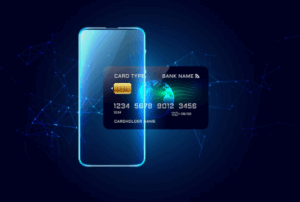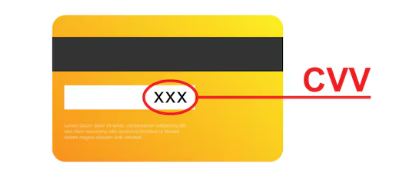| Overview: The CVV number is a crucial security code used for online transactions. This blog explains what CVV means, how to locate it without your physical card, and ways to protect it effectively during digital payments. |
CVV Explained: Protecting Every Digital Payment
In India, credit card transactions are steadily rising, with over 10 crore credit cards in circulation as per RBI data (mid 2025). Each online purchase requires a unique security code called a CVV, which safeguards users against fraudulent activities. Without it, transactions cannot proceed. Understanding how to access this number securely—whether on a physical card, via mobile apps, or through virtual cards—is essential for every credit card holder in today’s digital-first payment environment.
What Does CVV Stand For?
CVV stands for Card Verification Value. It is:
- A three-digit code printed on the back of most Indian credit cards.
- A four-digit code for certain cards like American Express.
- Used exclusively for online or card-not-present transactions.
Key points about CVV:
- Generated by banks using encrypted algorithms.
- Different from your PIN (used at ATMs or point-of-sale machines).
- Every new card issued will have a new CVV.
How Do I Find My Credit Card CVV Number Online?
You may wonder, “Can I find my CVV code online?” Yes, but only through authorised banking apps or virtual cards. Here’s how it works:
1. Using Mobile Banking Apps
Most Indian banks, like ICICI with iMobile Pay, allow viewing CVV digitally:
- Log in to your app.
- Navigate to the Cards section.
- Select your card → Flip virtual image → View CVV.
2. Through Virtual Credit Cards
Virtual cards issued for online transactions also display a CVV. This works just like a physical card but is generated digitally for secure usage.

3. Airtel Axis Bank Credit Card (Relevant Case)
With the Airtel Axis Bank Credit Card, users can manage details, including CVV. This ensures secure and convenient access when the physical card isn’t handy.
Why Is the CVV Important?
The CVV acts as an essential security layer, ensuring your credit card remains protected during digital transactions and reducing risks of fraud.
- Prevents fraudulent usage of stolen card numbers.
- Ensures transactions comply with Payment Card Industry Data Security Standards (PCI DSS).
- Unlike your card number, CVV cannot be stored by merchants.
| Aspect | PIN | CVV |
| Who sets it? | User | Bank-generated |
| Usage | ATM withdrawals, in-store purchases | Online transactions |
| Changeable? | Yes | No |
| Security level | Medium | High for digital transactions |
| What You Must Know: Never share your CVV on calls, emails, or unverified websites. |
Common Mistakes to Avoid When Handling CVV
Many cardholders unknowingly expose themselves to fraud by making simple errors with their CVV details—here are the key ones.
- Saving card details on insecure websites.
- Sharing card images on social media.
- Using public Wi-Fi to shop online.
- Ignoring account statements that may flag suspicious activity.
How to Protect Your CVV Number Online
Here are some best practices for Indian cardholders:
- Install antivirus software on your devices.
- Use only websites starting with “https://”.
- Always enable OTP authentication for payments.
- Avoid storing your card details on browsers.
Finding CVV Without the Physical Card
So, how do you find your CVV number without a card?
- Bank’s mobile app: The safest and most widely available option.
- Virtual card facility: Many banks issue these instantly.
- Contacting your bank’s customer service: They won’t share CVV directly but can guide you to secure viewing options.
| Quick Facts to Know: Every new card reissue gets a new CVV, it cannot be guessed due to encryption, and RBI mandates 2-factor authentication in India. |
Airtel Axis Bank Credit Card and CVV Access
The Airtel Axis Bank Credit Card provides:
- Full digital control.
- Safe access to your CVV without needing your physical card.
- Extra benefits like cashback offers on Airtel payments and online shopping.
This makes it not only a secure choice but also a rewarding option for everyday spending.
The Final Word on CVV Safety
The CVV number plays a critical role in safeguarding your credit card transactions online. Whether through mobile apps or virtual cards, Indian banks ensure secure methods to access it without relying on the physical card.
By staying alert, avoiding common mistakes, and following best practices, you can significantly reduce risks of fraud. For those seeking a seamless and rewarding experience, the Airtel Axis Bank Credit Card combines convenience, digital safety, and attractive benefits.
FAQs
Q1. Can I find my credit card security code online?
Yes, you can securely view it using your bank’s authorised mobile banking app or virtual card facility, not third-party sources.
Q2. What does a CVV number mean?
A CVV is a unique three-digit code printed on cards, ensuring security for online purchases and protecting against unauthorised transactions.
Q3. Is CVV the same as a PIN?
No, a PIN is user-generated for ATM or store transactions, while a CVV is bank-issued and used only for online payments.
Q4. Can my CVV number change?
Yes, every time a new credit or debit card is issued, it comes with a fresh CVV number for security.
Q5. How do I protect my CVV online?
Use trusted banking apps, avoid public Wi-Fi, shop only on secure websites, and never share card details over calls or emails.



